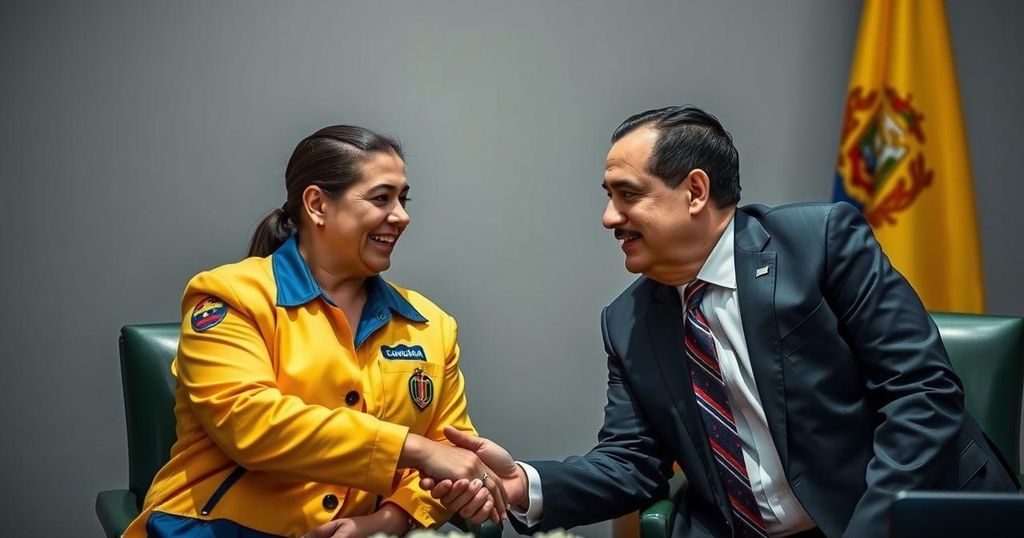Maria Corina Machado, a leader of the Venezuelan opposition, has urged Colombian President Gustavo Petro to recognize her faction’s victory in the contested July presidential election. This appeal came during a virtual address to the Colombian Senate, aimed at intensifying international pressure on Nicolás Maduro to resign by January.
On Tuesday, Venezuelan opposition leader Maria Corina Machado called upon Colombian President Gustavo Petro to take decisive action and officially recognize her faction’s electoral victory in the disputed July presidential election in Venezuela. Machado delivered this appeal during a virtual address to the Colombian Senate, as part of her ongoing campaign to escalate international pressure on Nicolás Maduro’s administration to step down by January. The acknowledgment of her faction’s victory by Colombia could signal significant support for the Venezuelan opposition, which has been struggling to gain traction against Maduro’s government.
The Venezuelan political crisis has persisted for years, characterized by severe economic instability, human rights violations, and a humanitarian crisis. Maria Corina Machado has emerged as a prominent opposition figure, advocating for democratic reforms and seeking the ousting of President Nicolás Maduro, who remains a controversial and polarizing leader in the region. The July presidential election was marked by widespread allegations of fraud and manipulation, thereby prompting various factions within Venezuela, including Machado’s, to contest the legitimacy of the election results. The support from neighboring nations, particularly Colombia, is seen as crucial for Machados efforts to manifest changes in governance within Venezuela.
In summation, Maria Corina Machado’s appeal to President Gustavo Petro emphasizes the intricate relationship between Venezuela and Colombia amidst the ongoing political turmoil. By urging recognition of her electoral success, Machado seeks to galvanize international support against Maduro, highlighting the broader implications for governance and democracy in the region.
Original Source: www.washingtonpost.com







